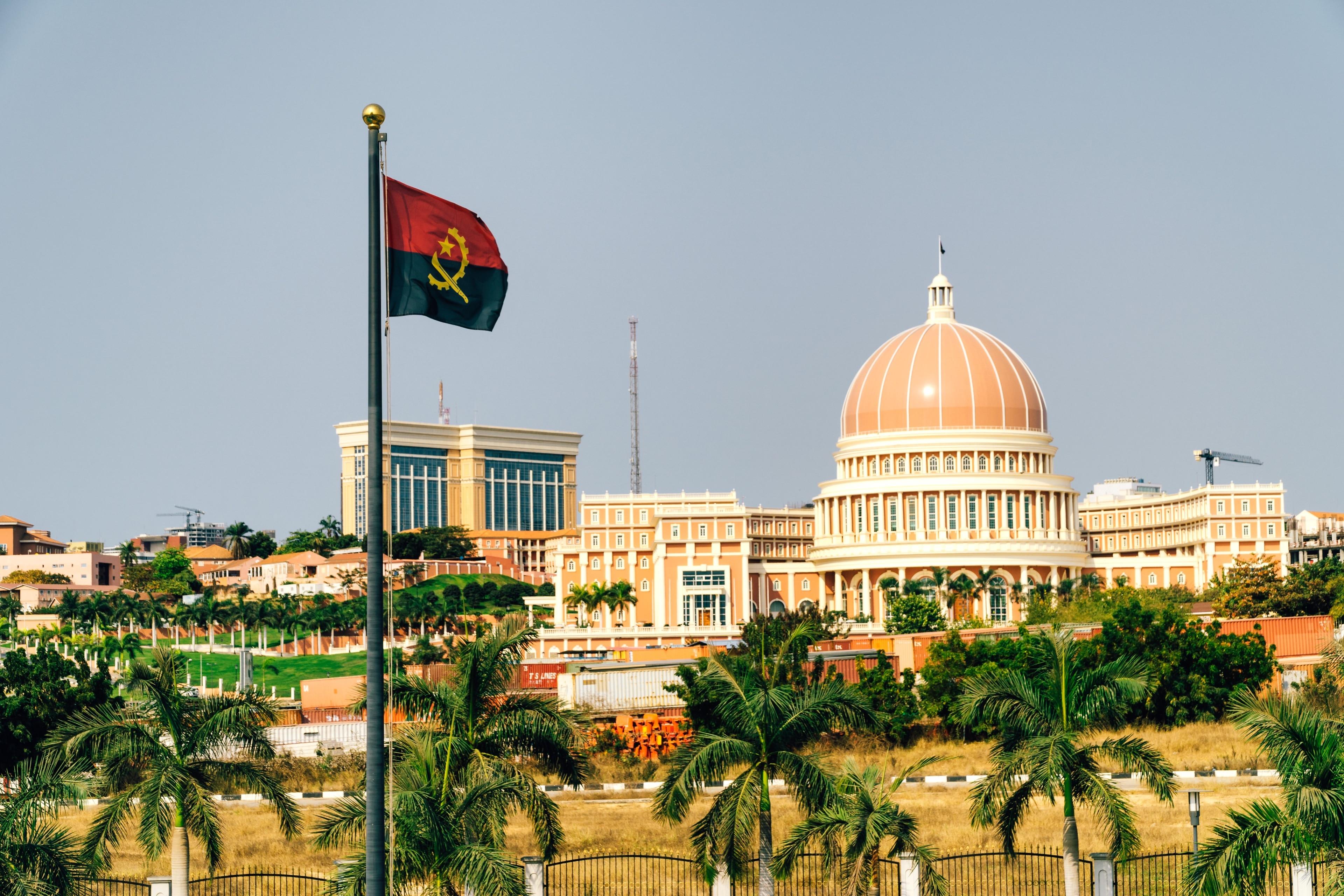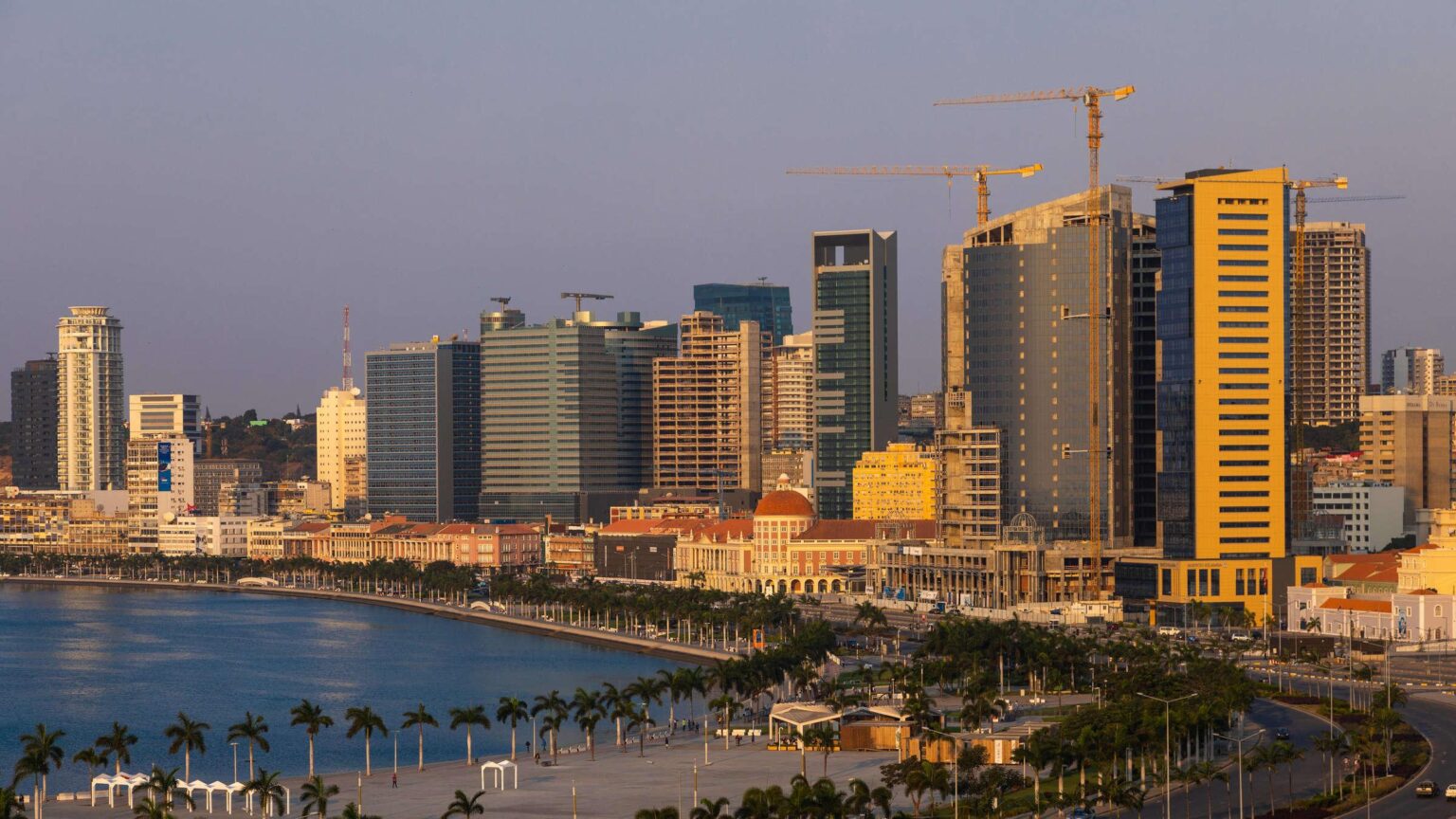in a notable effort to enhance development in Angola, Akin-Olugbade, the Vice President of the African Development Bank (AfDB), has embarked on a mission aimed at driving enduring growth adn reducing poverty in the nation.This visit comes at a crucial time for Angola, a country rich in natural resources yet grappling with the challenges of economic diversification and social inequality. Akin-Olugbade’s agenda includes engaging with government officials, local stakeholders, and community leaders to identify strategic initiatives that leverage the AfDB’s resources and expertise. As Angola seeks to harness its potential and achieve the Sustainable Development Goals, the insights and collaboration from this mission could prove pivotal in shaping the nation’s developmental trajectory. In this article, we delve into the objectives of Akin-Olugbade’s visit, the current development landscape in Angola, and the broader implications for the african continent as it strives for inclusive economic progress.
Angola’s Economic Landscape: Challenges and Opportunities for Growth
Angola’s economy is characterized by a mix of challenges and opportunities that shape its development trajectory.The country has been historically reliant on oil exports, which account for a significant portion of its GDP and government revenue. However, fluctuations in global oil prices have exposed vulnerabilities within the economy, necessitating a shift towards diversification. Economic reform initiatives are being pursued to enhance the business environment, attract foreign investment, and foster private sector growth.Challenges such as high unemployment rates, inflation, and infrastructure deficits remain critical hurdles. Addressing these issues is essential for realizing the potential of Angola’s rich natural resources, agricultural sector, and burgeoning industries.
In light of these challenges, there are significant opportunities for growth that stakeholders can leverage. Key sectors such as agriculture, mining, and tourism offer promising avenues for expansion. By enhancing agricultural productivity and adopting sustainable practices, Angola can reduce food insecurity and promote exports. The government is also exploring partnerships with international organizations to improve infrastructure and connectivity, particularly in rural areas. Moreover,the promotion of small and medium-sized enterprises (SMEs) is crucial,as they are vital for economic resilience. The focus on digital transformation and innovation further opens doors for investment in technology and education, paving the way for a more diversified and sustainable economic future.
The Role of the African Development Bank in Revitalizing Angola’s Development
The African Development Bank (AfDB) plays a pivotal role in steering Angola towards sustainable growth and economic diversification. By aligning its strategic initiatives with the government’s Vision 2025, the AfDB aims to address the pressing challenges facing the nation. key areas of focus include:
- Infrastructure Development: Investing in essential projects such as roads, schools, and hospitals to enhance access to services.
- Energy Sector Support: Promoting renewable energy projects to ensure reliable electricity supply and reduce dependency on fossil fuels.
- Agricultural Innovation: Facilitating tech-driven agricultural practices to improve food security and create employment.
Additionally, the AfDB’s commitment to capacity building is evident through its various programs aimed at improving governance and institutional frameworks.Partnerships with local stakeholders and international organizations strengthen the implementation of projects and ensure sustainable outcomes. A key feature of the bank’s interventions is its focus on:
| focus Area | Expected Benefits |
|---|---|
| Financial Inclusion | Enhancing access to credit for small and medium enterprises. |
| Human Capital Development | Improving educational opportunities and vocational training. |
| climate Resilience | Building infrastructure that withstands climate-related challenges. |
Strategic Investments in Infrastructure: A Path to Sustainable Progress
Investing strategically in infrastructure is pivotal for unlocking Angola’s potential, aligning with its development goals while promoting economic growth and sustainability. As Akin-Olugbade, the Vice President of the african Development Bank, embarks on this mission, several key infrastructure areas warrant emphasis:
- transportation Networks: Enhancing road and rail systems to facilitate trade and mobility.
- Energy Solutions: Developing renewable energy projects to ensure reliable access while minimizing environmental impacts.
- Water Management: Investing in water supply and sanitation systems to improve public health and agricultural productivity.
To evaluate the impact of these investments, it is crucial to consider both measurable outcomes and community engagement.Below is a table outlining potential benefits that integrated infrastructure development can provide:
| Investment Area | Potential Benefits |
|---|---|
| Transportation | Increased trade efficiency and job creation |
| Energy | Enhanced industrial competitiveness and reduced energy costs |
| Water | Improved health outcomes and agricultural yield |
The collaboration between the African Development Bank and angola symbolizes a commitment to fostering an environment where infrastructure serves not just as a backbone for economic activities but as a catalyst for sustainable progress. Such strategic investments enable communities to thrive, support private sector growth, and build resilience against future challenges.
Empowering Local Communities: Prioritizing Social Development Initiatives
The African Development Bank is taking significant steps to uplift local communities in Angola by integrating social development initiatives into broader economic strategies.By fostering inclusivity, these initiatives aim to enhance access to essential services such as education, healthcare, and clean water. Key aspects of these initiatives include:
- Community Engagement: Actively involving local leaders and residents in the planning and execution of projects to ensure their needs are met.
- Sustainable Practices: implementing environmentally friendly approaches to development that promote long-term benefits for both communities and ecosystems.
- Capacity Building: Providing training and resources to empower local populations, enhancing their skills and abilities to contribute to their communities.
Moreover, partnership with local organizations stands at the forefront of the Bank’s strategy. By collaborating, these organizations can tailor initiatives to better fit the cultural and social contexts of communities, thereby increasing their efficacy. Here’s a brief overview of recent collaborations:
| Local Organization | Focus Area | Current Project |
|---|---|---|
| Community Health Alliance | Healthcare Access | mobile Clinic Initiative |
| Angola Education Network | Education Outreach | Literacy Programs |
| Green Future Foundation | Environmental Sustainability | Reforestation Projects |
Innovative Financing Solutions: Enhancing Angola’s Economic Resilience
In the face of economic challenges, Angola is poised to leverage innovative financing solutions as a key strategy for enhancing its resilience and sustainable development.The recent mission by African Development Bank Vice President Akin-Olugbade highlights a commitment to mobilizing resources that not only bolster public and private investment but also invigorate local entrepreneurship. These innovative financing mechanisms include:
- Green Bonds: Designed to fund projects that deliver environmental benefits, contributing to Angola’s climate commitments.
- Public-private Partnerships (PPPs): Inviting private investment in public services and infrastructure, ensuring shared accountability and risk mitigation.
- Microfinance Initiatives: Expanding access to financial services for small and medium enterprises (SMEs), empowering local businesses and fostering economic diversity.
moreover, the implementation of these financial strategies is supported by the establishment of collaborative frameworks with international donors and investors, making Angola an attractive destination for impactful investments. To visualize the potential impact,consider the following table depicting projected growth sectors through these financing solutions:
| Sector | Projected Growth Rate (2024-2028) | Investment Potential (USD Billions) |
|---|---|---|
| Agriculture | 5.2% | 3.5 |
| Renewable Energy | 7.8% | 4.0 |
| Infrastructure Development | 6.5% | 6.2 |
| Tourism | 8.1% | 2.8 |
By embracing these innovative financing practices, Angola is set to navigate its economic landscape more effectively, fostering an environment that attracts strategic investments and supports long-term growth. With the African Development Bank’s expertise and backing,the nation is on a transformative path,ultimately ensuring a robust economic future for its citizenry.
Collaborative Partnerships: Fostering a Cohesive Development Approach in Angola
The African Development Bank is intensifying its efforts to build collaborative partnerships in Angola, recognizing the necessity of uniting various stakeholders to enhance developmental outcomes. This initiative aims to align the interests of the government, private sector, and civil society to create a coherent strategy that addresses the multifaceted challenges facing the nation. By fostering dialog and cooperation among these groups, the Bank seeks to leverage their collective strengths and resources, ensuring a more impactful and sustainable development trajectory for Angola.
Key areas of focus for these partnerships include:
- Infrastructure Development: Improving roads, schools, and healthcare facilities to facilitate access and service delivery.
- Climate Resilience: Implementing strategies to combat climate change, focusing on sustainable agriculture and renewable energy.
- Job Creation: Promoting entrepreneurship and skills development to empower the workforce and drive economic growth.
| Stakeholder | Role |
|---|---|
| Government | Policy formulation and resource allocation |
| Private Sector | Investment and innovation |
| Civil Society | Community engagement and advocacy |
Insights and Conclusions
Vice President Akin-Olugbade’s mission to Angola represents a strategic move by the African development Bank to enhance development outcomes across the nation. His focus on fostering sustainable economic growth and addressing pressing social challenges underscores the Bank’s commitment to partnering with African nations in their pursuit of development. As Angola navigates the complexities of its economic landscape, the collaborative efforts highlighted in this mission could play a pivotal role in unlocking investment opportunities, improving infrastructure, and ultimately elevating the standard of living for its citizens. The outcomes of this initiative will be closely watched, not only for their immediate impact but also for the broader implications they may hold for development across the African continent. The african Development Bank’s continued engagement in Angola illustrates a proactive approach to ensuring that the benefits of growth are shared equitably, paving the way for a more prosperous and resilient future.

